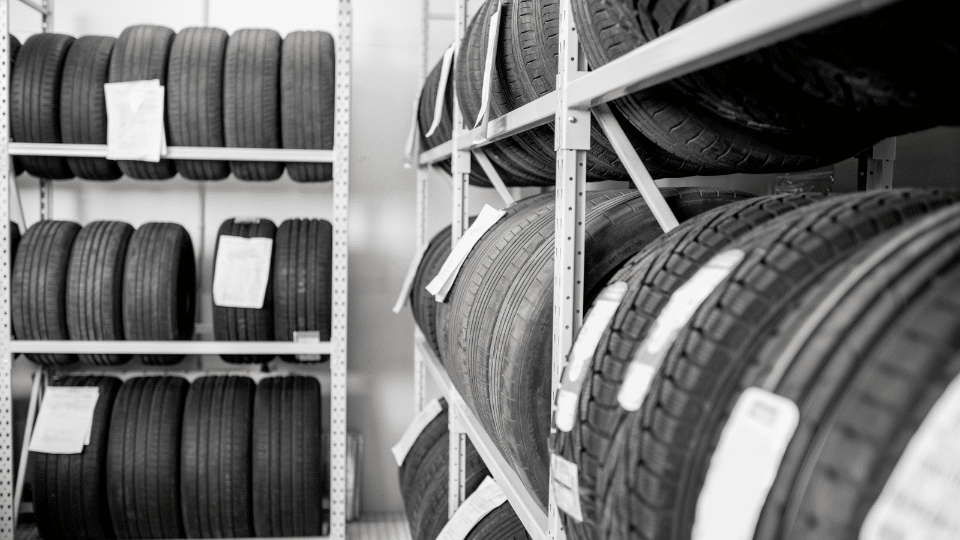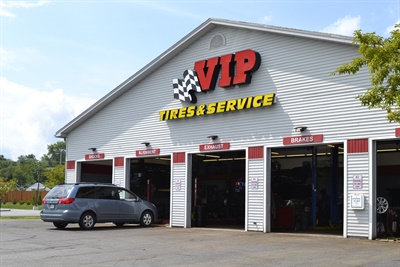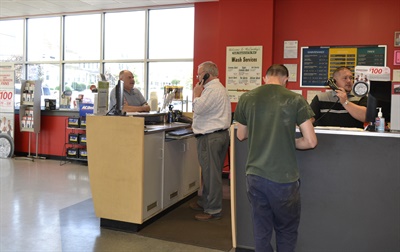
It was the strangest exit interview in my life. I was leaving for a start-up, so the CEO of my soon-to-be-former-employer knew he couldn’t talk me out of leaving.
However, out of nowhere, he asked if I thought the overseas owners of his company would ever give him full authority to run it the way he wanted. I said, “No.”
He then asked if I thought a CEO like him, who had run a large chain of tire and service shops, could succeed in a “regular retail” business. I answered, “Yes. It’s way harder to make a buck in the tire and service business than in a regular retail business.”
Thirty days later, that CEO resigned and took a marginally profitable chain of roofing supply stores doing $1 billion in annual sales and built it into a $10 billion profitable powerhouse.
I seriously doubt my input had anything to do with his leaving. But I was right in predicting his success.
Is the reverse true? Can a retail executive easily succeed at tire and service operations? I think the jury is out on that one.
Off the top of my head, I can’t think of a single example. Look at what happened to Sears, Roebuck & Co. and Montgomery Ward Inc. They had a policy of rotating executives through apparel, tools and automotive, which, if you’re looking for someone to run the whole company, I guess makes sense.

To boost the revenue and profitability of your stores, have your employees follow the same process for each customer. Important steps include inspect, quote, get an approval, do the service, test drive, review — and thank the customer. How well this process is adhered to determines its success.
Tire and service is more of a “process” business than a “retail” business. The only similarity is that both businesses have storefronts. The successful CEO I mentioned above essentially ran a chain of 1,500 job shops. Every store, every day, had to react to 30 or so completely different customer situations, following this same process:
- The customer gets checked in by the sales staff for the service he or she came in for.
- The vehicle inspection is sold or a courtesy check is presented by sales staff and approved by the customer.
- The customer’s contact information and whereabouts for the next several hours are ascertained by the sales staff.
- The customer’s car is pulled into the first available service bay by a technician.
- The car is inspected by a technician in the first 25% of the window of time he has the car.
- The inspection is priced out by sales staff or service manager.
- The customer is tracked down and the work is approved or not.
- The approved work is communicated to the technicians, and the parts or tires are sourced by the sales staff or service manager.
- The car is serviced by the technicians and is then test driven by the end of the day.
- Work is reviewed, the customer cashes out and the staff thanks the customer.
Whew! This can wear on you! It’s a hard process. God bless the people who do it every day with smiles on their faces. How well they do it determines the revenue and profitability of that store.
I’m not sure a regular retail executive has the same appreciation for the people and processes found in a tire and service facility as the people and processes found in other businesses. Without trained, experienced people who can work those processes well, you’re nothing. It’s the people — not ads or merchandising — who generate revenue.

At 2019 Tire Dealer of the Year John McCarthy Jr.’s stores, the retail counter serves as “the front door” for the dealership, says McCarthy. Here Guy Westerholm, left, and Jordan Davis work with customers in the Wilkes-Barre, Pa., store.
Mess with a finely tuned store’s people and processes at your own peril. I’ve heard how one large nationwide retailer a few years back went through a “change is good” and “new thinking” phase, and systematically cleaned house of anyone with real tire and service experience. What a blunder!
Previously, the people who managed that company never fired anyone, even employees who messed up royally. People were repurposed instead.
An under-performing regional manager was turned into its best district manager. A poor performing district manager became its best store manager. Sometimes people just need to be placed in positions where they can thrive.
Finally, a word about financial executives. Compared to retail executives, financial executives are great at squeezing out a profit, but might not be so great at growing same-store sales. I’ve seen better results when they left the operation of stores to experienced underlings who knew how to grow sales.
Experienced operators know you can’t grow sales without people. Look at any tire and service operator’s highest revenue store and you’ll see it has way more people employed than in a smaller revenue store.
But getting to that point took a step-by-step approach of making sure the in-store process was right, making sure the right mix of salespeople and technicians were there, investing to increase the staff level to get capacity, and then maybe increasing the car count through targeted advertising to keep those new people busy.
It involves spending on people in advance of revenue and then spending to get more car count. Financial executives hate that spending part. They’re better off not being involved in it. But once revenue grows, they sure know how squeeze out more profit!
There are nuances to the tire and service business that take years to learn and appreciate. The successful CEO whom I mentioned at the start of this article also taught me that if you want to know what’s really wrong with a store, talk to the technicians first — and always shake their hands, regardless of how oily and dirty those hands might be.
In addition, he taught me to study the process in the store in order to turn it into a smooth money-making machine. And he taught me that to get things running smoothly, you have to be in the stores all the time. You can’t learn those things by running a Best Buy or a Toys“R”Us.
Michael McGregor is a partner at FOCUS Investment Banking LLC (focusbankers.com/tire-and-service) and advises and assists multi-location tire dealers on mergers and acquisitions in the automotive aftermarket. For more information, contact him at [email protected].













